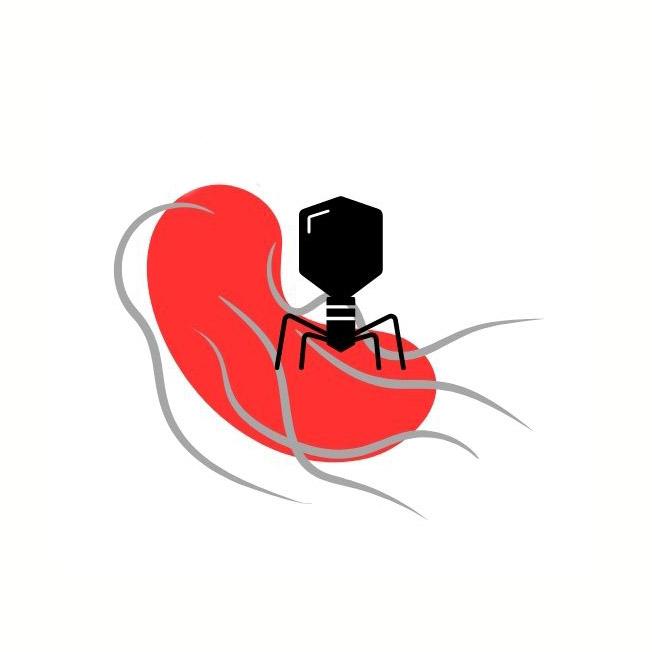
Phage therapy to reduce AMR enterobacteria spread from a One Health perspective
Controlling growth of multidrug resistant (MDR) bacteria and limiting the transmission of antimicrobial resistance genes in broilers could be an effective mitigation strategy. To counteract the spread of MDR bacteria among zoonotic pathogens in food-producing animals and reduce the risk of their transmission to humans or the environment, antibiotic use in animal husbandry has to be reduced.
Bacteriophage therapy is increasingly accepted as an environmentally-friendly antimicrobial intervention strategy, effective at specifically targeting bacterial pathogens, to prevent the transmission of resistant bacteria from foods to humans and vice versa.
We use MDR Salmonella and E. coli in broilers as a model and will first select the most efficient phage combinations to specifically reduce these bacteria and MDR plasmids in broilers. As the main objective of the Hungarian partner will investigate the transmission of AMR plasmids between different enterobacteria in the broiler gut and improve on-site detection of MDR foodborne pathogens as an early warning system at farm level.
Clara Marin Orenga, Universidad CEU Cardenal Herrera (Spain)
Muna F. Anjum, Animal and Plant Health Agency (United Kingdom)
Raúl Fernandez Lopez, Instituto de Biomedicina y Biotecnologia de Cantabria (IBBTEC), Universidad de Cantabria (Spain)
Danish J. Malik, Chemical Engineering Department, Loughborough University (United Kingdom)
Eliora Z. Ron, Shmunish School of Biomedicine and Cancer (Israel)